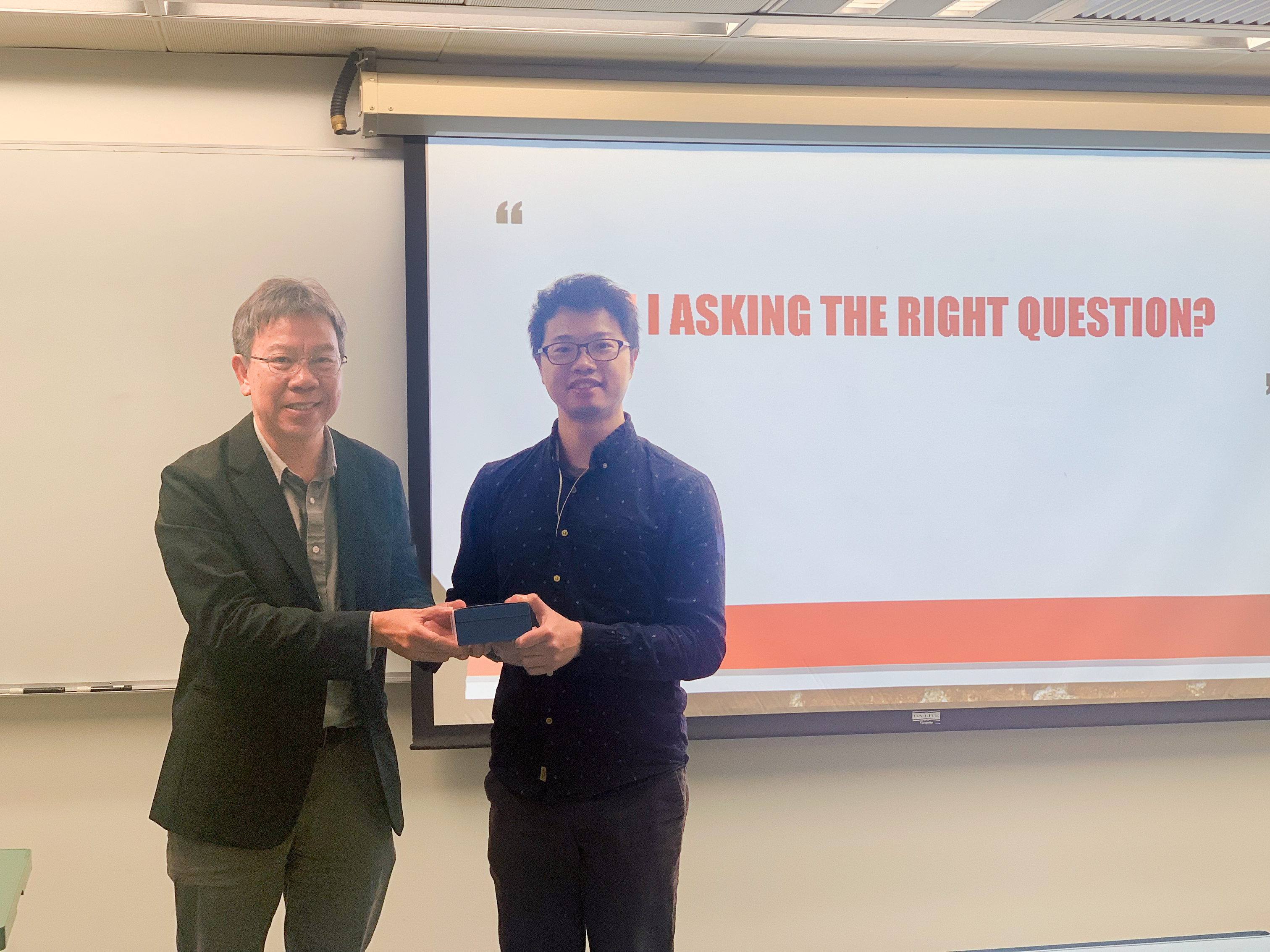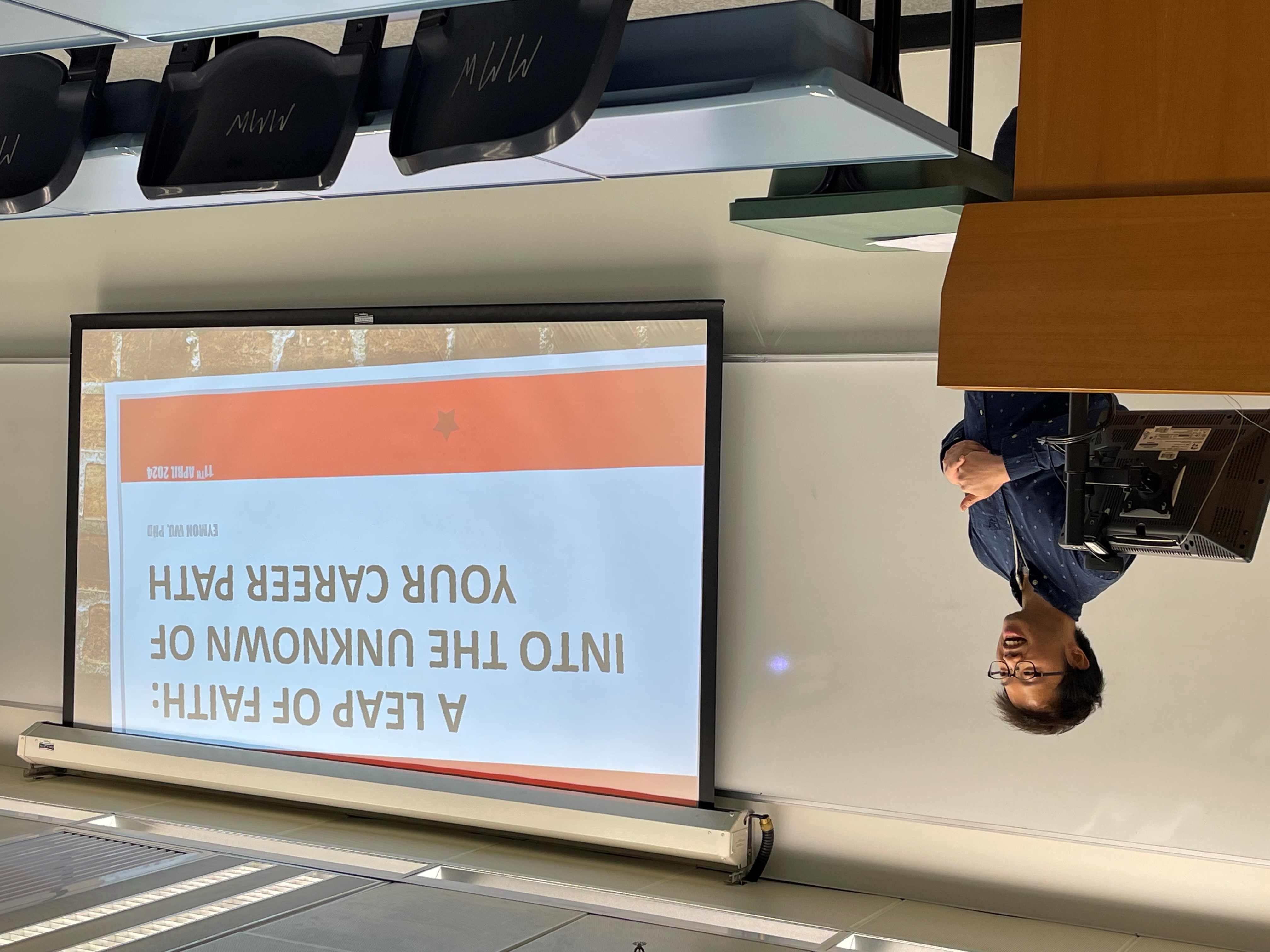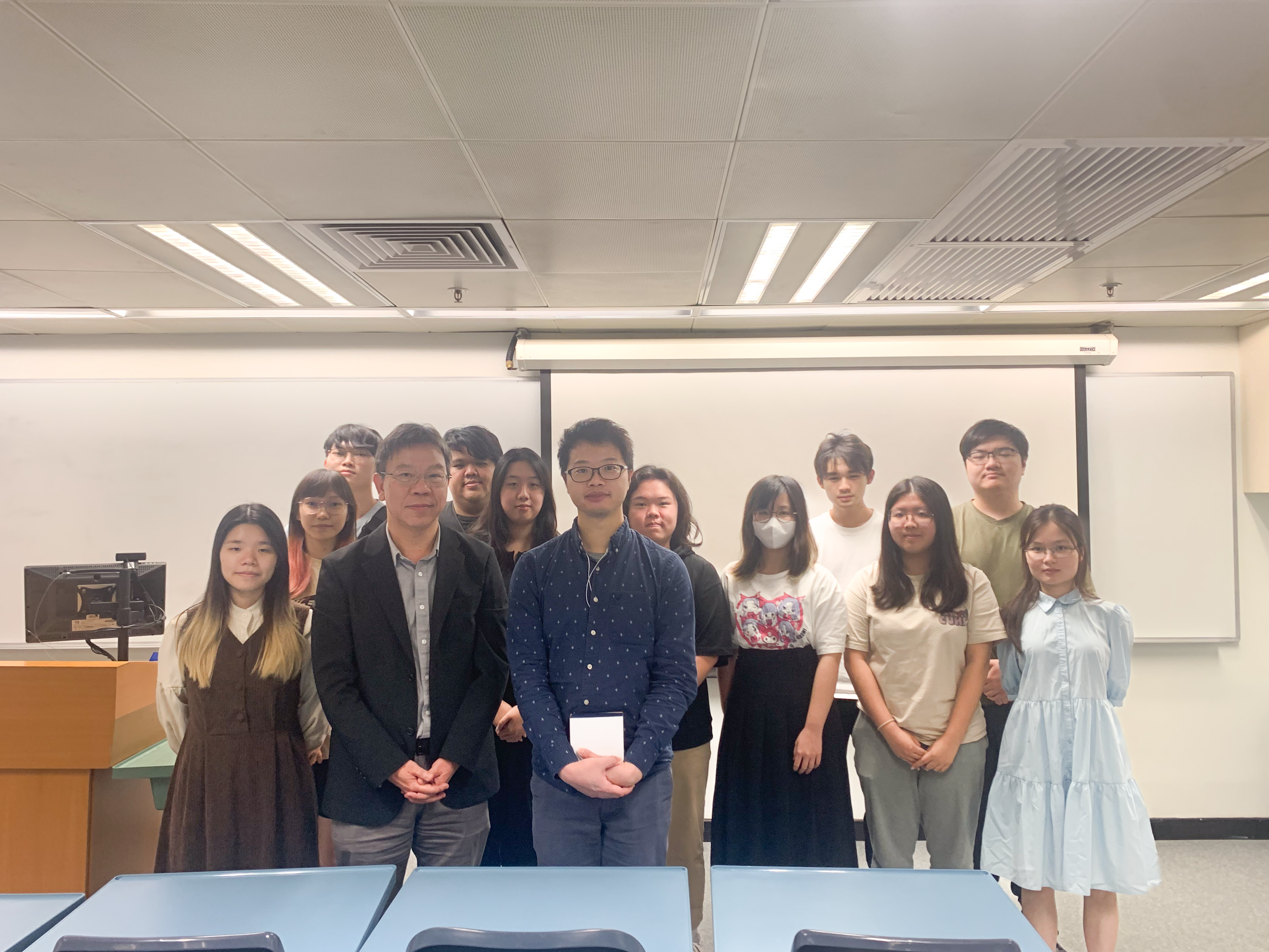| 繁體中文 |
| |
|
School of Life Sciences, the Chinese University of Hong Kong (CUHK) was grateful to have Dr. Eymon Wu as guest speaker in this Career Talk on 11 April, 2024. Dr. Wu is a Postdoctoral Fellow in Faculty of Medicine, University of Hong Kong, as well as an alumnus from Biochemistry Programme, School of Life Sciences, CUHK. During the talk, Dr. Wu has shared his insightful thoughts in research experiences, career path and advantages of Biochemistry major graduates.
Research experience
Dr. Wu thinks the determination in research depends on students’ interest in innovation and discovery. Self-questioning such as “Is this correct? Is this the right direction? Is this what I want to do?” is an inevitable process in research — the exciting journey in reaching out from the comfort zone, bringing the faith, and leaping into the unknown to pursue fact and truth, along with misery, anxiety and pressure.
|
 |
|
As biochemistry and biotechnology related degrees offered by institutions are drastically increasing, Dr. Wu encourages students to enrich their education profile by continuing education to demonstrate their ability in research and solving problems in specific fields. He observed some students had unclear ambitions in research and postgraduate studies, so he encourages students to make their decision by making their first try in research by shadowing in relevant laboratories.
|
 |
Although both postgraduate and undergraduate are treated as students, the nature in two sides is totally different. Undergraduate emphasizes in studying and accumulating basic knowledge, and building up future occupational skills and abilities. On the other hand, postgraduate emphasizes in discovering new knowledge in a specific field to solve complex problems. Starting from solid basic skills acquired in undergraduate, we will soon acquire the most recent and the most complex knowledge, we could claim ourselves as a professional. Dr. Wu recalls his experience in writing grant proposals for his lab during his MPhil, which compiling basic skills and professional knowledge in explaining complex scientific concepts with simple words, to persuade investors to provide grant into your project is not easy.
|
|
Dr. Wu emphasizes a lot in interdisciplinary research. “When I was in undergraduate, I have never thought of applying programming and big data into my research, but now I did!” He shared his experience in interchanging research disciplines among his undergraduate and postgraduate career, that interdisciplinary research is very common as other disciplines would be involved to solve the unknown. Therefore, collaboration with professionals in other disciplines is essential to bring promising results and knowledge. Meanwhile scientists should also acquire interdisciplinary skills in terms of communication, presentation, leadership and business knowledge to gain advantage as well.
Doing research is exploring the unknown. Dr. Wu advises students to question and ask in every circumstances. Besides from reading books and research articles, we could ask from the professionals by easily approaching them through email or LinkedIn to seek answers. Meanwhile, Dr. Wu also advises students to question themselves during research. “Is this the correct way to ask question? Is this the right way to solve this problem? Is this my favorite research discipline?” We must obtain these answers from ourselves for the next question, to expand our comfort zone to explore the unknown. When we equipped with sufficient ability in research, we could grasp the opportunity to achieve our meaning of life we genuinely enthuse on, with persistence, no hesitation under perfect timing and luck.
|
|
Career Path
Besides from research, Medical Laboratory Technologist is a very common occupational choice for students who would like to be professional in laboratory techniques. Dr. Wu thinks the license of Medical Laboratory Technologist is very useful with the ability of issuing laboratory report and medical and clinical biochemistry techniques, which is advantageous in working in laboratory and research assisting jobs. Besides, scientists in laboratory management are essential to maintain standard of procedures (SOPs), good manufacturing practices (GMPs) and quality control (QC) to minimize errors in each experiment.
For students with less interest in experiments, they could work in administration work in assisting in laboratory flow and research. Besides from assisting in GMP design, ISO accreditations, QC and research related law (for example, Animal experimental ethics), there are also commercial based laboratory assisting job to develop or introduce laboratory machines and materials, and sell them to laboratory supervisors and personnel.
Dr. Wu thinks the current trend emphasizes in applying research findings into products in realty to solve problems in society. In order to protect intellectual property of the product, lawyers with biochemistry and biotechnology knowledge are proficient to apply law so as to protect inventor’s rights and return. This could promote biotechnology development and encourage venture capital investing into STEM innovation market.
|
|
Advantages of biochemistry graduates
As Hong Kong Government is promoting STEM innovation, the market shall have elevating demand of related job openings, therefore it is not hard to get employed. However graduates still have to compete with foreign and postgraduate professionals, therefore license accredited jobs (such as Medical Laboratory Technologist) would be more secure for an offer. On the other hand, the market has increasing demand in talents with knowledge in intellectual property and patents in order to protect research results and profits, especially for those who simultaneously acquire skills in science, art and communication.
Conclusion
Dr. Wu finally reminds students to follow their hearts and dream high, reflect on their aspirations, and bring on with the faith to achieve across the unknown.
|
 |
|

